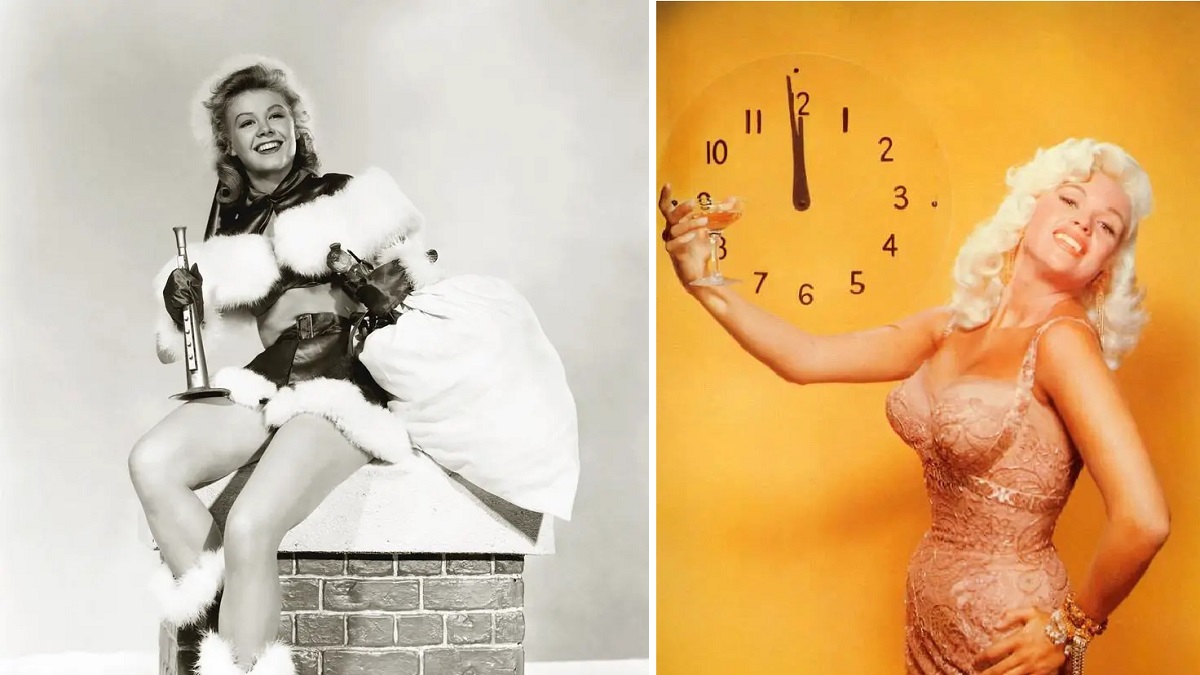Steven Spielberg, one of the most iconic and influential filmmakers in the history of cinema, was born on December 18, 1946, in Cincinnati, Ohio. From an early age, he showed an interest in making movies, and by his teens, he was already making amateur films with friends. Spielberg eventually attended California State University, Long Beach, and while still a student, he began directing short films and television episodes.
Breakthrough Success
Spielberg’s breakthrough came in 1975 with the release of the groundbreaking thriller, Jaws. The film’s success catapulted him into the spotlight, and he quickly became one of Hollywood’s most sought-after directors. Over the years, Spielberg has directed and produced countless films, many of which have become classics. Spielberg has won a total of seven Oscars, including two for Best Director for Schindler’s List (1993) and Saving Private Ryan (1998).
Innovation and Technology
Throughout his career, Spielberg has been at the forefront of technological advancements in filmmaking. From the animatronic shark in Jaws to the groundbreaking CGI in Jurassic Park, Spielberg’s films have consistently pushed the boundaries of what is possible on the big screen. Spielberg co-created the character of Indiana Jones with George Lucas, directing the first four films in the franchise and serving as an executive producer on the fifth film.
Emotional Storytelling
One of Spielberg’s greatest strengths is his ability to evoke a sense of nostalgia in his films. Whether it’s the childlike wonder of E.T. the Extra-Terrestrial or the thrilling adventures of Indiana Jones, Spielberg’s movies often transport viewers back to a simpler time, creating a powerful emotional connection.
Spielberg has a knack for creating memorable and relatable characters that resonate with audiences. From the lovable E.T. to the heroic Indiana Jones, his characters have become iconic figures in pop culture and continue to inspire new generations of filmmakers.
Here is a list of some of Steven’s Spielberg best movies that you should watch.
#1 Duel (1971)
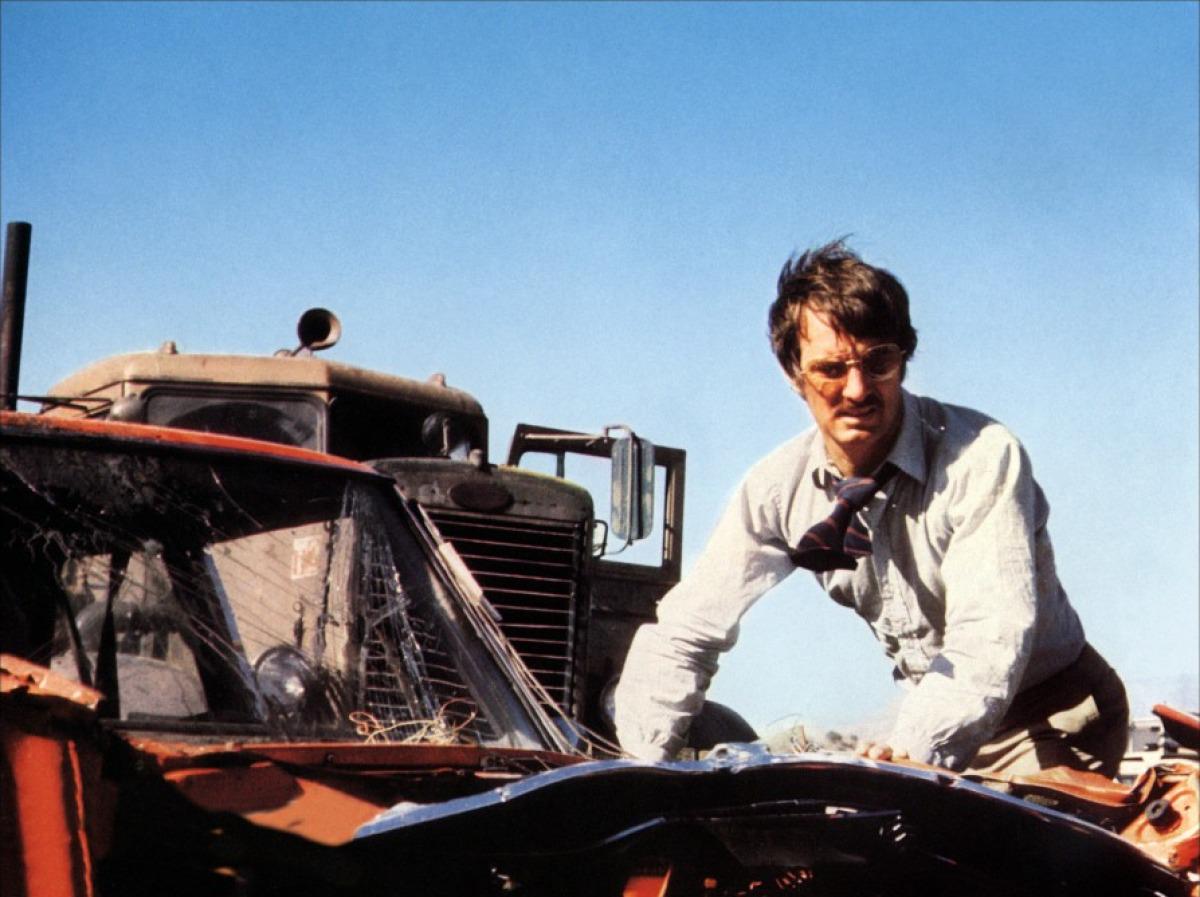
Steven Spielberg's thrilling directorial debut, showcases his innate ability to create tension and suspense. The film follows the harrowing tale of a motorist pursued by a menacing, unseen truck driver across a desolate landscape. Spielberg's mastery of pacing and visual storytelling is evident, as he transforms a simple cat-and-mouse game into a gripping, psychological thriller. With minimal dialogue and a keen focus on atmospheric details, Spielberg set the stage for his illustrious career, demonstrating an uncanny knack for storytelling and the capacity to elicit strong emotions from viewers.
#2 The Sugarland Express (1974)
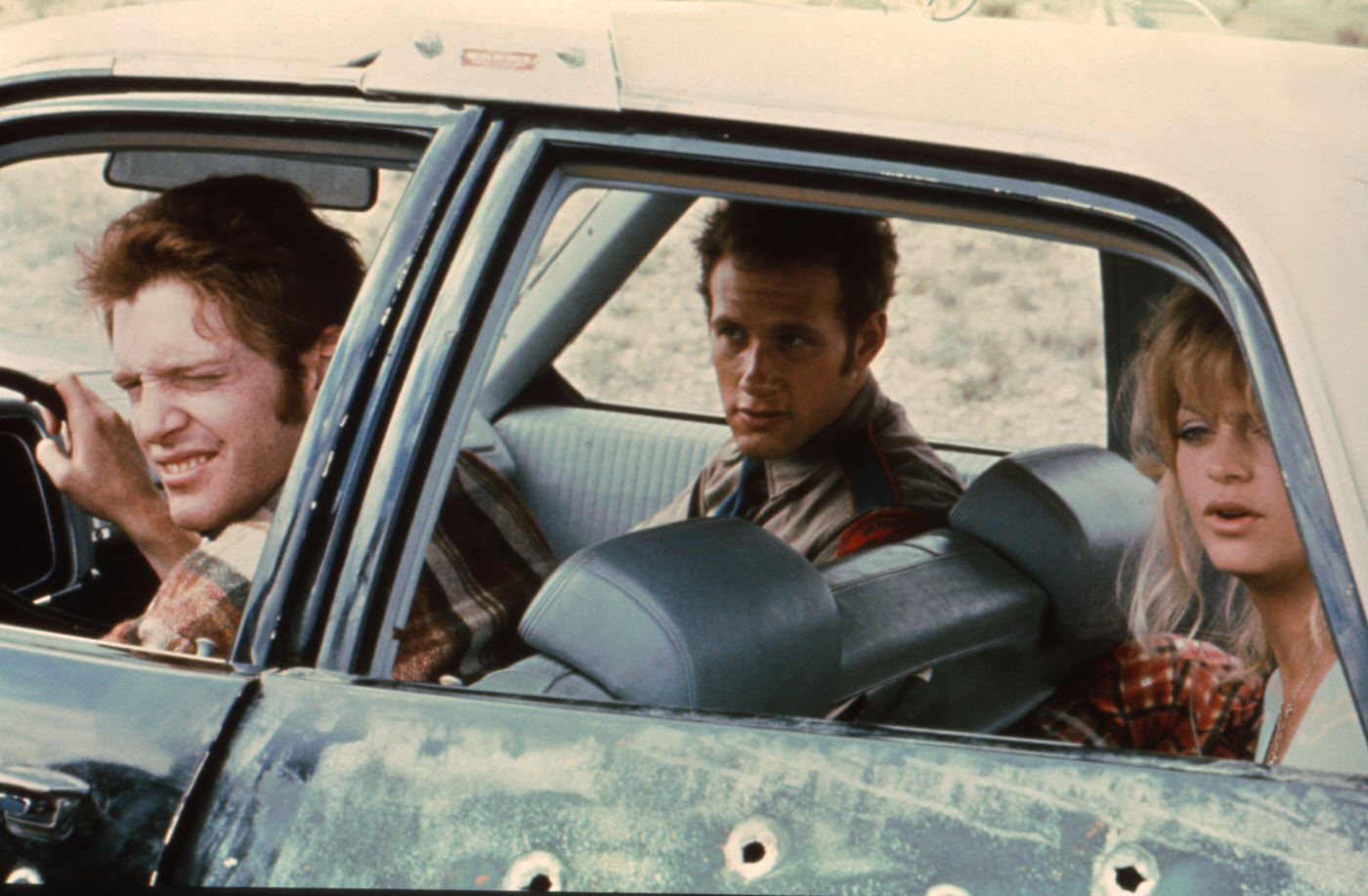
It is an early testament to Steven Spielberg's incredible ability to blend drama, action, and emotional depth. Based on a true story, the film follows a desperate couple on a high-speed chase across Texas to reclaim their child from foster care. Spielberg's keen eye for character development and visual storytelling is evident throughout, as he captures the increasing stakes and emotional turmoil of the protagonists. His skillful use of long shots and pacing heightens the tension while maintaining a sense of humanity. The Sugarland Express showcases Spielberg's emerging talent as a director and his ability to tell compelling stories with heart and authenticity.
#3 Jaws (1975)
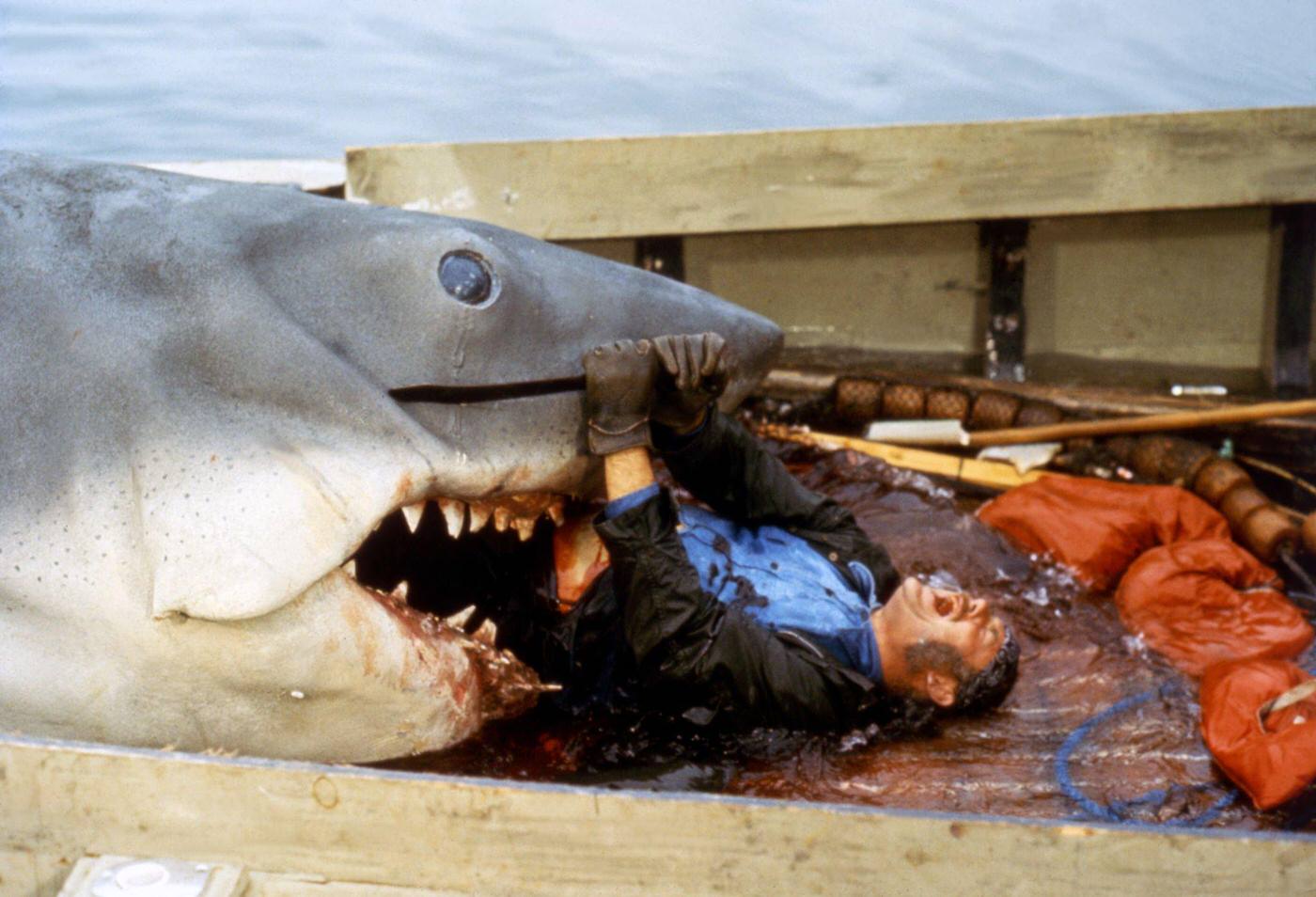
This iconic thriller demonstrates his exceptional talent for building suspense and creating unforgettable cinematic moments. The film follows a small-town police chief, a marine biologist, and a grizzled fisherman as they hunt a colossal great white shark terrorizing their community. Spielberg's masterful use of pacing, camera angles, and John Williams' haunting score creates a palpable sense of dread, keeping audiences on the edge of their seats. His ability to evoke fear with minimal visual cues of the shark itself showcases his prowess as a visual storyteller. Jaws not only launched Spielberg's career as a blockbuster filmmaker but also redefined the modern horror genre.
#4 Close Encounters of the Third Kind (1977)
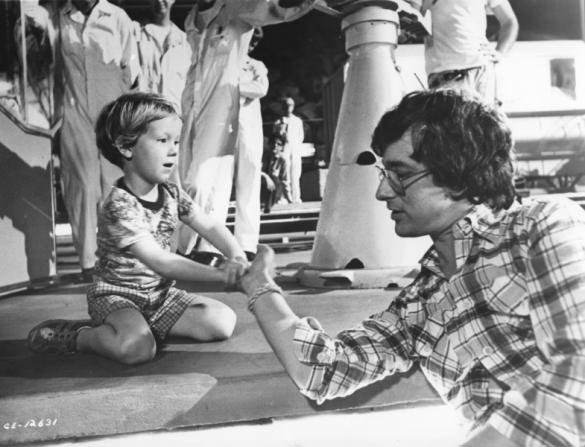
This movie highlights Steven Spielberg's skill in blending human drama with awe-inspiring visuals to create a compelling sci-fi masterpiece. The film tells the story of ordinary people who experience life-altering encounters with extraterrestrial beings, leading to a profound, climactic event. Spielberg's astute direction showcases his ability to evoke a sense of wonder and curiosity through his characters' journeys, while simultaneously exploring themes of obsession and isolation. The film's groundbreaking special effects and innovative sound design, combined with Spielberg's visionary storytelling, result in a timeless classic that continues to captivate audiences and solidify his status as a master of the sci-fi genre.
#5 1941 (1979)
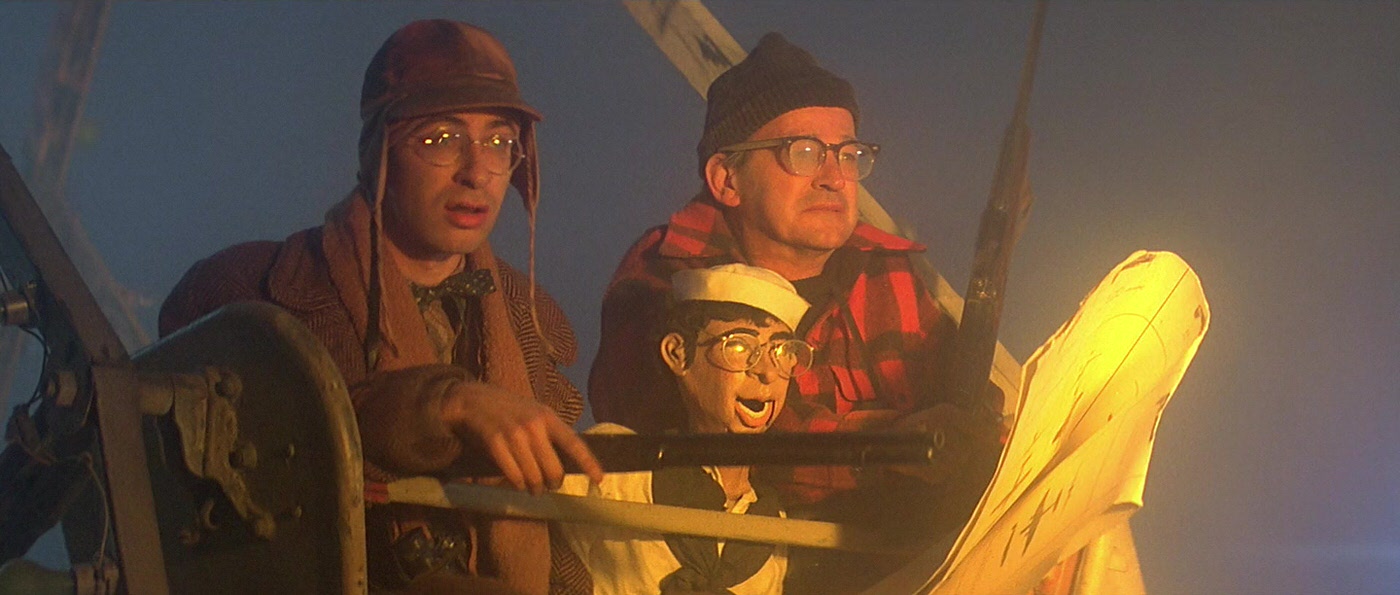
1941 (1979) is a comedic war film that showcases Steven Spielberg's versatility as a director, blending slapstick humor with impressive large-scale action sequences. Set during World War II, the film follows an ensemble cast of eccentric characters as they navigate the chaos and paranoia that ensues after a rumored Japanese invasion of California. Spielberg expertly juggles multiple storylines and comedic set pieces, demonstrating his ability to handle complex productions while maintaining a consistent comedic tone. Although not as critically acclaimed as some of his other works, 1941 highlights Spielberg's willingness to explore different genres and his remarkable capacity to entertain audiences with his distinctive cinematic style.
#6 Raiders of the Lost Ark (1981)
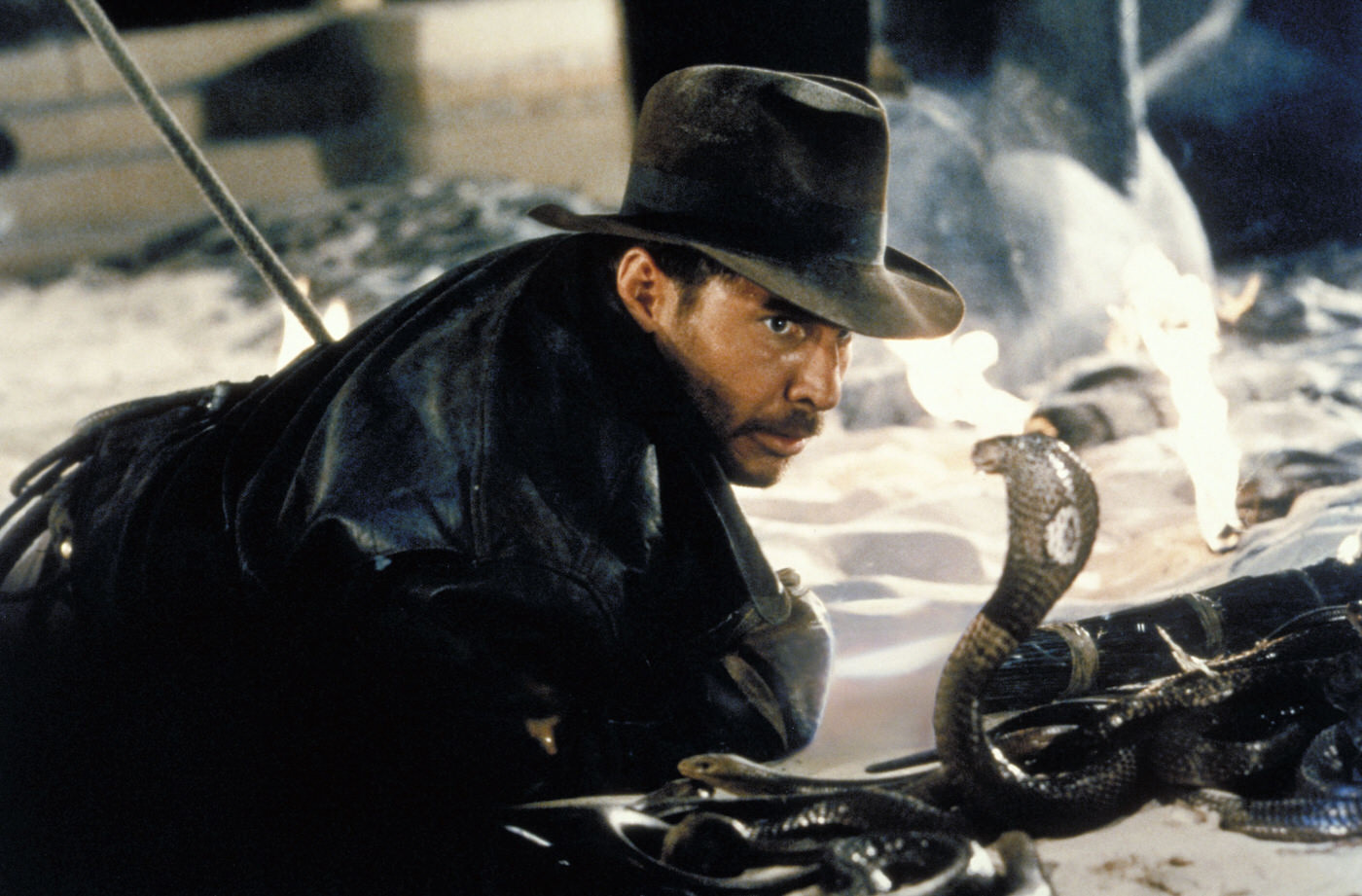
Raiders of the Lost Ark is a swashbuckling adventure film that showcases Steven Spielberg's incredible talent for crafting exhilarating action sequences and memorable characters. Introducing the iconic archaeologist Indiana Jones, the movie follows his quest to uncover the biblical Ark of the Covenant before the Nazis can seize its power. Spielberg's expert direction imbues the film with a perfect balance of thrills, humor, and heart, creating a timeless classic that revitalized the adventure genre. His inventive, fast-paced action scenes, combined with Harrison Ford's charismatic performance, solidify Raiders of the Lost Ark as a quintessential Spielberg masterpiece and a defining moment in his illustrious career.
#7 E.T. the Extra-Terrestrial (1982)
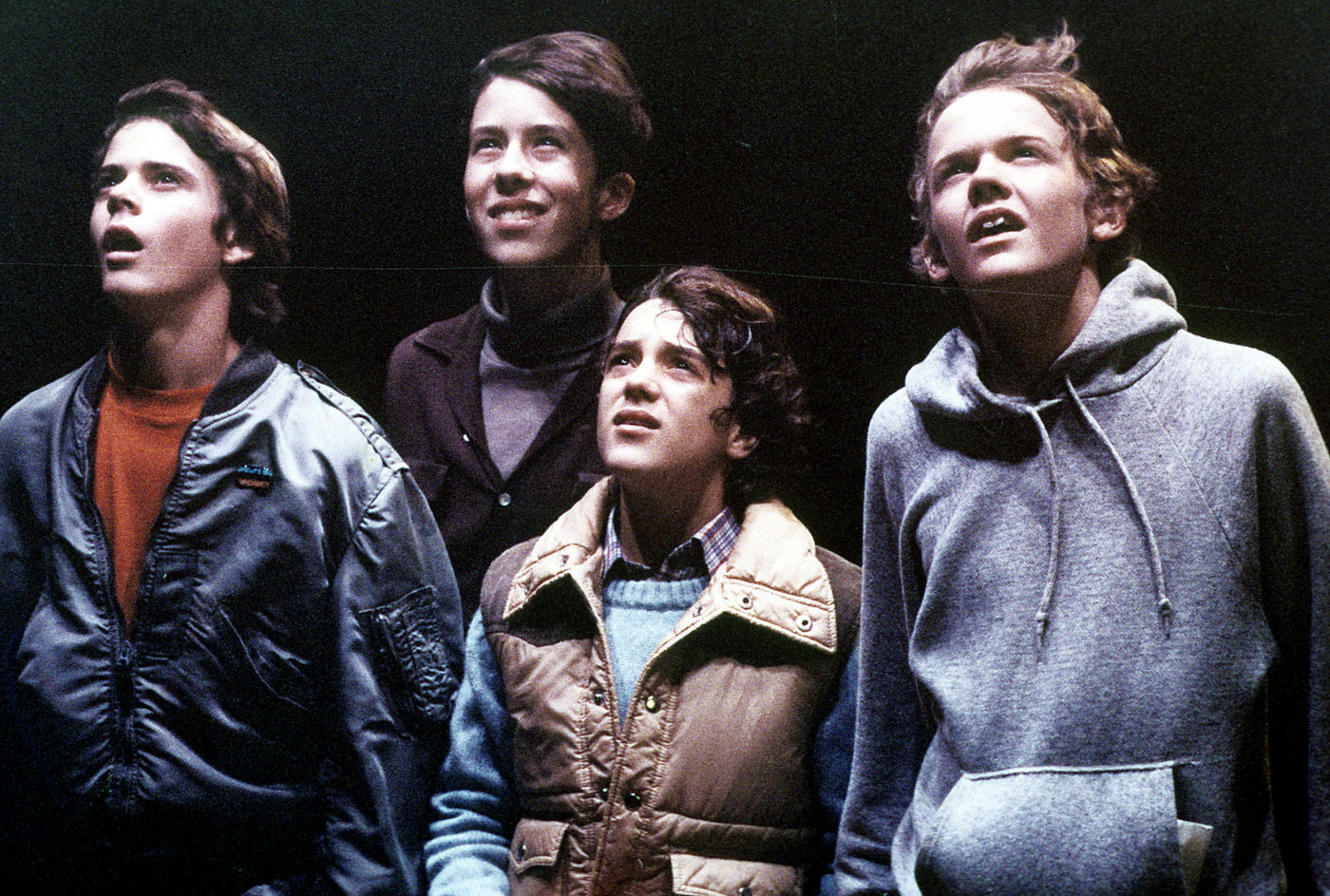
It is a heartwarming sci-fi classic that highlights Steven Spielberg's gift for telling emotionally resonant stories. The film follows a young boy, Elliott, who befriends a gentle alien stranded on Earth and embarks on a quest to help him return home. Spielberg's masterful direction captures the wonder and innocence of childhood, while exploring themes of friendship, family, and the power of empathy. His ability to create memorable, enchanting visuals, such as the iconic bicycle flight across the moon, leaves a lasting impression on audiences of all ages. E.T. showcases Spielberg's unrivaled talent for blending fantasy, emotion, and adventure into a cinematic experience that continues to captivate generations.
#8 Indiana Jones and the Temple of Doom (1984)
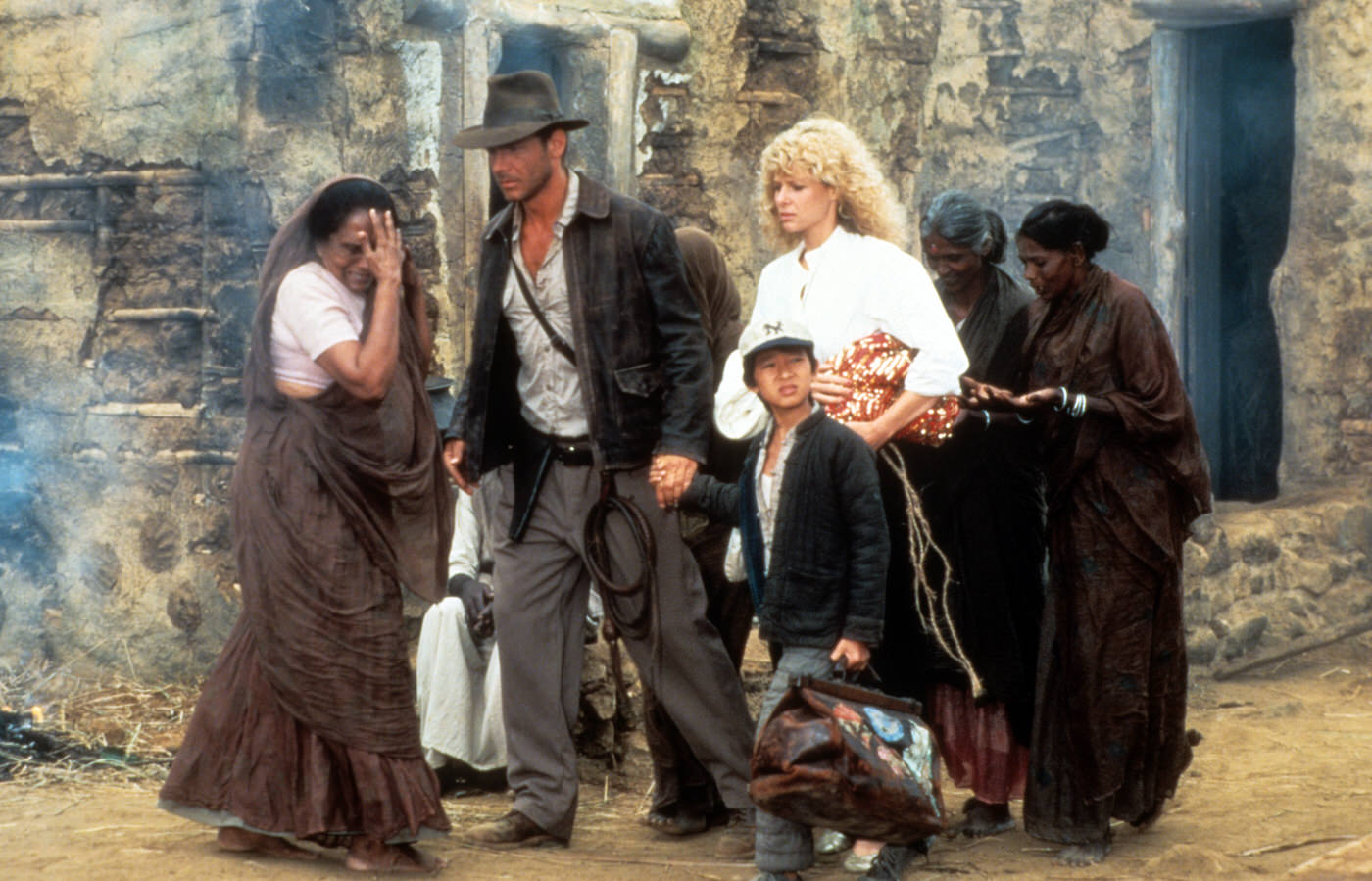
This film demonstrates Steven Spielberg's aptitude for crafting thrilling, high-stakes action sequences and expanding on the lore of an iconic character. The film serves as a prequel to Raiders of the Lost Ark, following the daring archaeologist as he uncovers a sinister cult in India. Spielberg's direction showcases his ability to balance heart-pounding action with humor and human drama, while also incorporating darker, more intense themes. His keen eye for visual storytelling and elaborate set pieces keeps audiences riveted throughout the adventure. Indiana Jones and the Temple of Doom solidifies Spielberg's status as a master of the action-adventure genre and reinforces the enduring appeal of the beloved series.
#9 The Color Purple (1985)
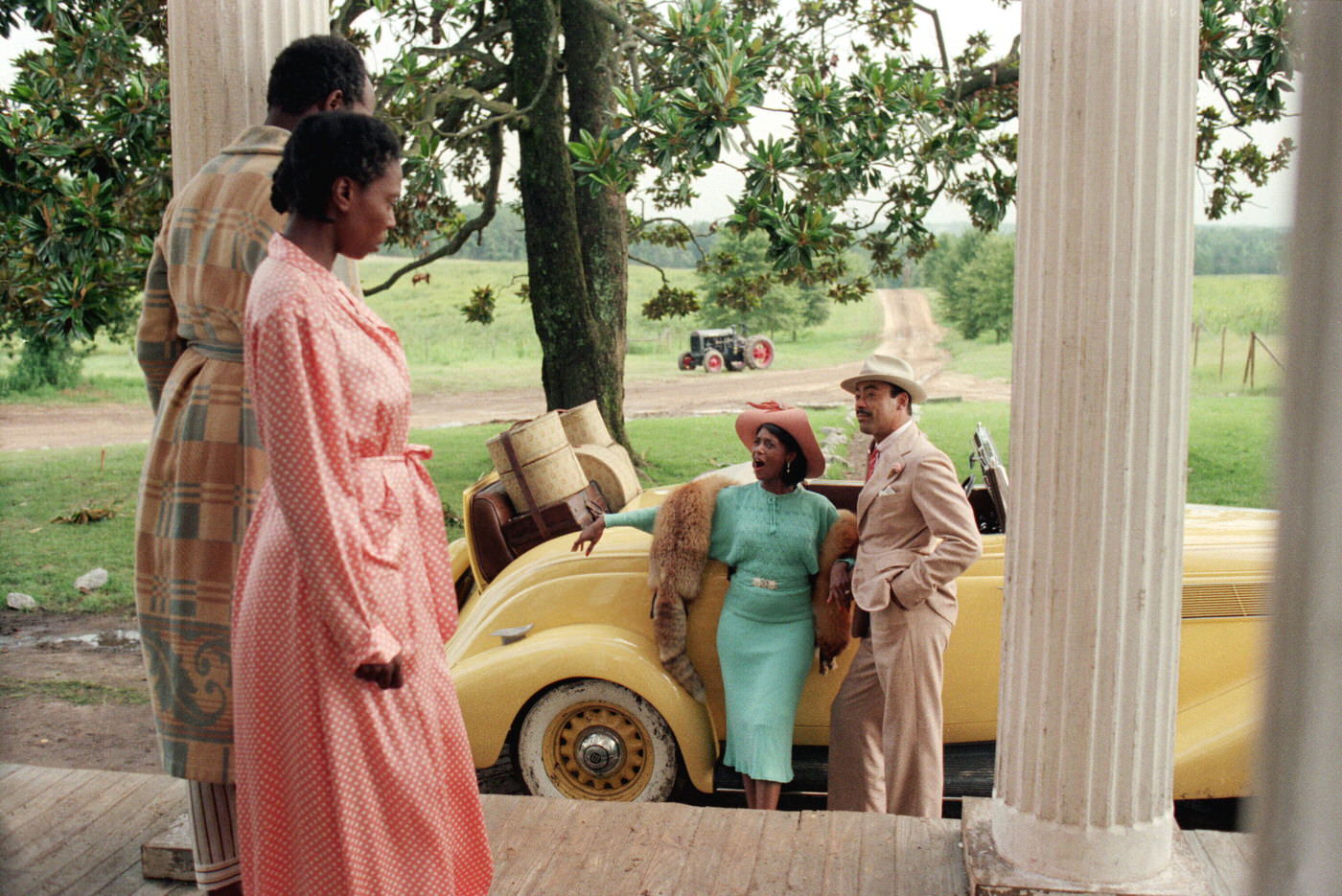
This film exemplifies Steven Spielberg's versatility as a director, as he gracefully adapts Alice Walker's Pulitzer Prize-winning novel into a powerful, emotionally charged drama. The film chronicles the life of Celie, an African American woman in the early 20th century, as she endures immense hardship and ultimately finds empowerment through love and sisterhood. Spielberg's sensitive direction captures the depth of human emotion and resilience, while exploring themes of racism, sexism, and personal transformation. His skillful handling of complex subject matter, combined with stellar performances from the cast, illustrates Spielberg's ability to tell poignant, human stories that resonate deeply with audiences and showcase his range as a filmmaker.
#10 Empire of the Sun (1987)
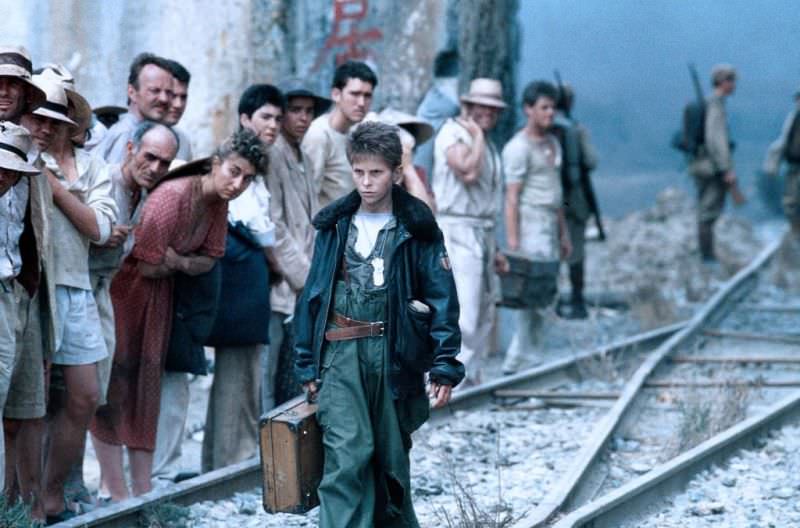
It is a visually stunning war drama that highlights Steven Spielberg's ability to tell deeply emotional, character-driven stories against the backdrop of large-scale historical events. Based on J.G. Ballard's semi-autobiographical novel, the film follows a young British boy's struggle for survival in a Japanese internment camp during World War II. Spielberg's masterful direction captures the harsh realities of war, while also showcasing the resilience and adaptability of the human spirit. His keen eye for visual storytelling, combined with a remarkable performance from a young Christian Bale, creates a powerful cinematic experience that underscores Spielberg's talent for evoking empathy and drawing audiences into the personal journey of his characters.
#11 Indiana Jones and the Last Crusade (1989)
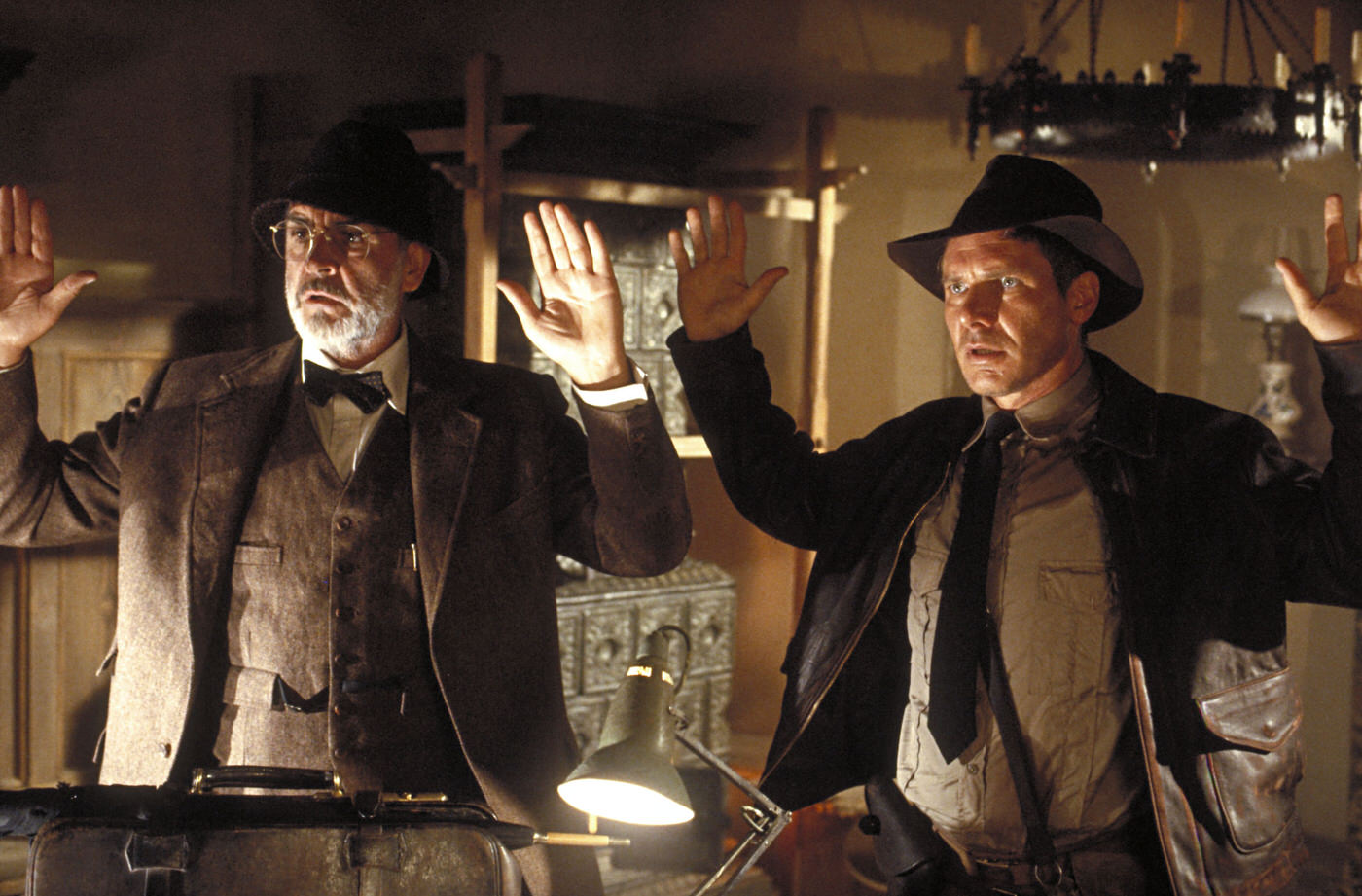
This film reaffirms Steven Spielberg's mastery of the action-adventure genre, blending thrilling set pieces, humor, and heart into an unforgettable cinematic experience. In this installment, Indiana Jones teams up with his estranged father, played by Sean Connery, to find the legendary Holy Grail before the Nazis can exploit its power. Spielberg's skillful direction creates a compelling father-son dynamic while maintaining the series' trademark excitement and high stakes. His ability to combine visually stunning action sequences with emotional depth and character development elevates the film to a classic status, further solidifying Indiana Jones' place in cinematic history and showcasing Spielberg's extraordinary storytelling talent.
#12 Always (1989)
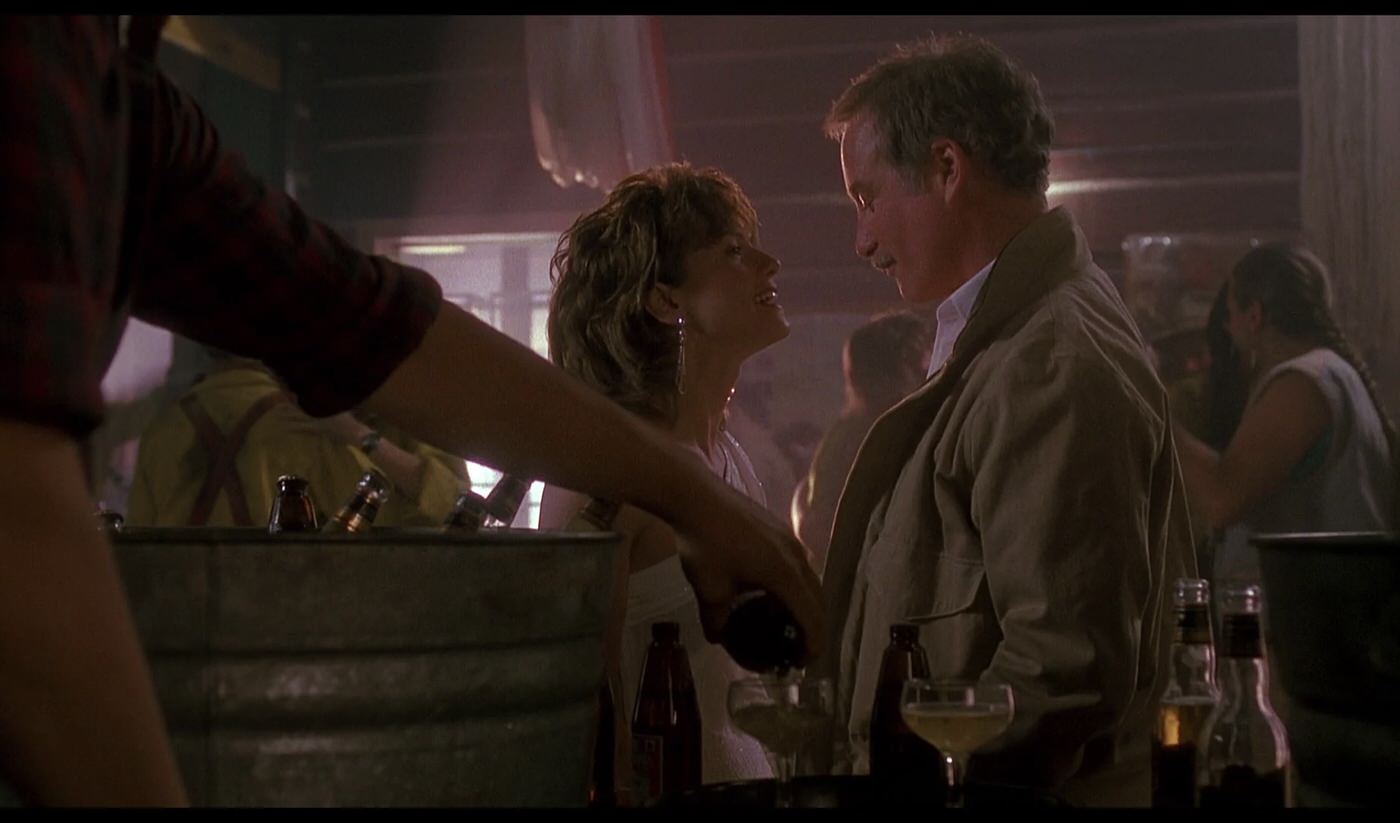
Always (1989) is a romantic drama that showcases Steven Spielberg's ability to delve into the realm of human emotions and explore themes of love, loss, and redemption. A remake of the 1943 film "A Guy Named Joe," the story follows a deceased pilot, played by Richard Dreyfuss, who returns as a ghost to guide and watch over his grieving girlfriend, played by Holly Hunter, and a young pilot-in-training. Spielberg's tender direction imbues the film with warmth and sentimentality, while also demonstrating his talent for creating visually striking aerial sequences. Always may not be as well-known as some of Spielberg's other works, but it highlights his versatility and aptitude for handling heartfelt, character-driven narratives.
#13 Hook (1991)
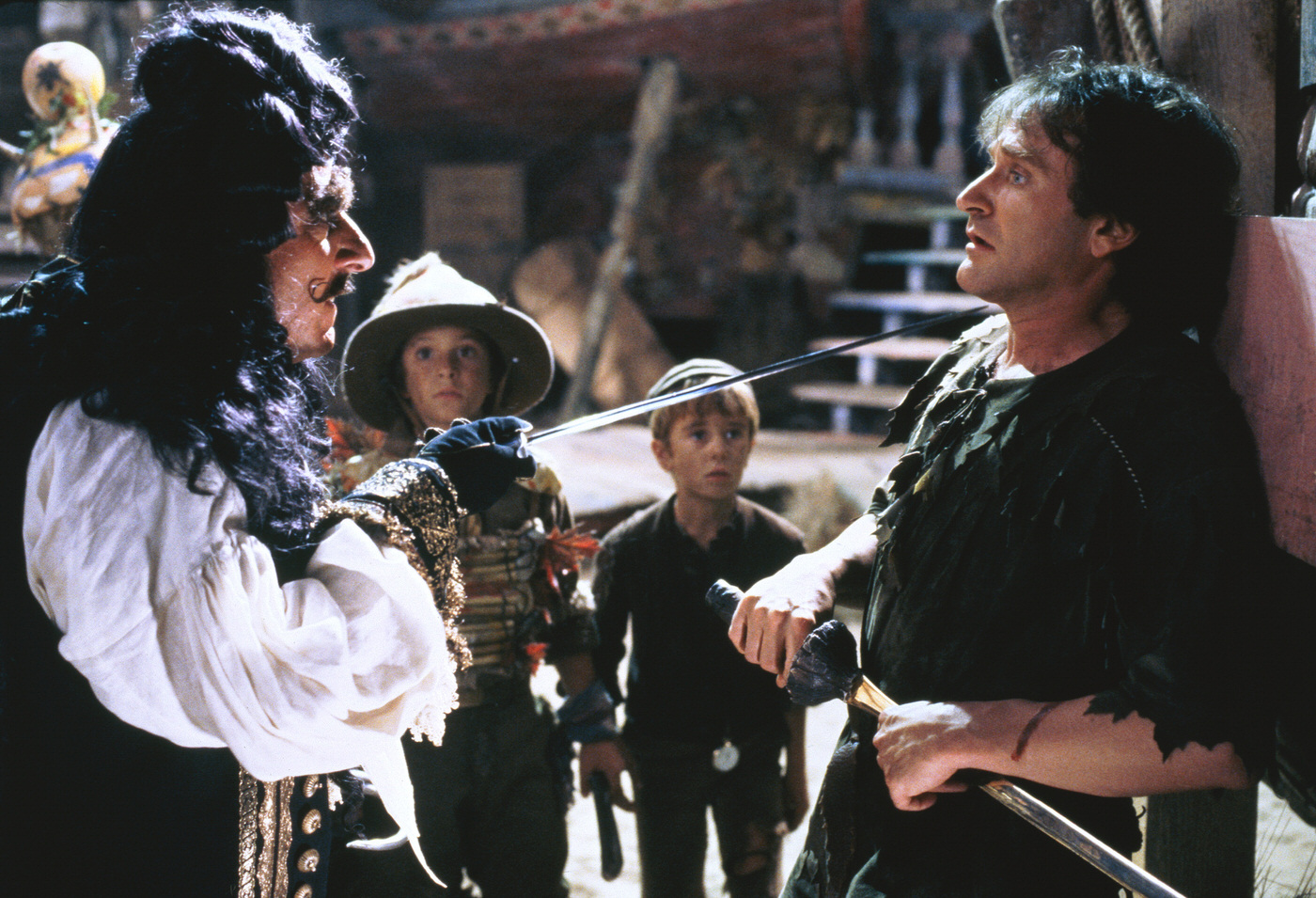
It is a whimsical, imaginative reinterpretation of J.M. Barrie's classic Peter Pan story that showcases Steven Spielberg's flair for creating enchanting, visually stunning worlds. The film follows a grown-up Peter Pan, played by Robin Williams, who must return to Neverland to rescue his children from the nefarious Captain Hook, played by Dustin Hoffman. Spielberg's direction brings to life the magic and wonder of Neverland, while exploring themes of rediscovering one's inner child and the importance of family. His ability to balance dazzling special effects with heartfelt, emotionally resonant storytelling results in a charming, nostalgic adventure that appeals to both children and adults, further demonstrating his range and prowess as a filmmaker.
#14 Jurassic Park (1993)
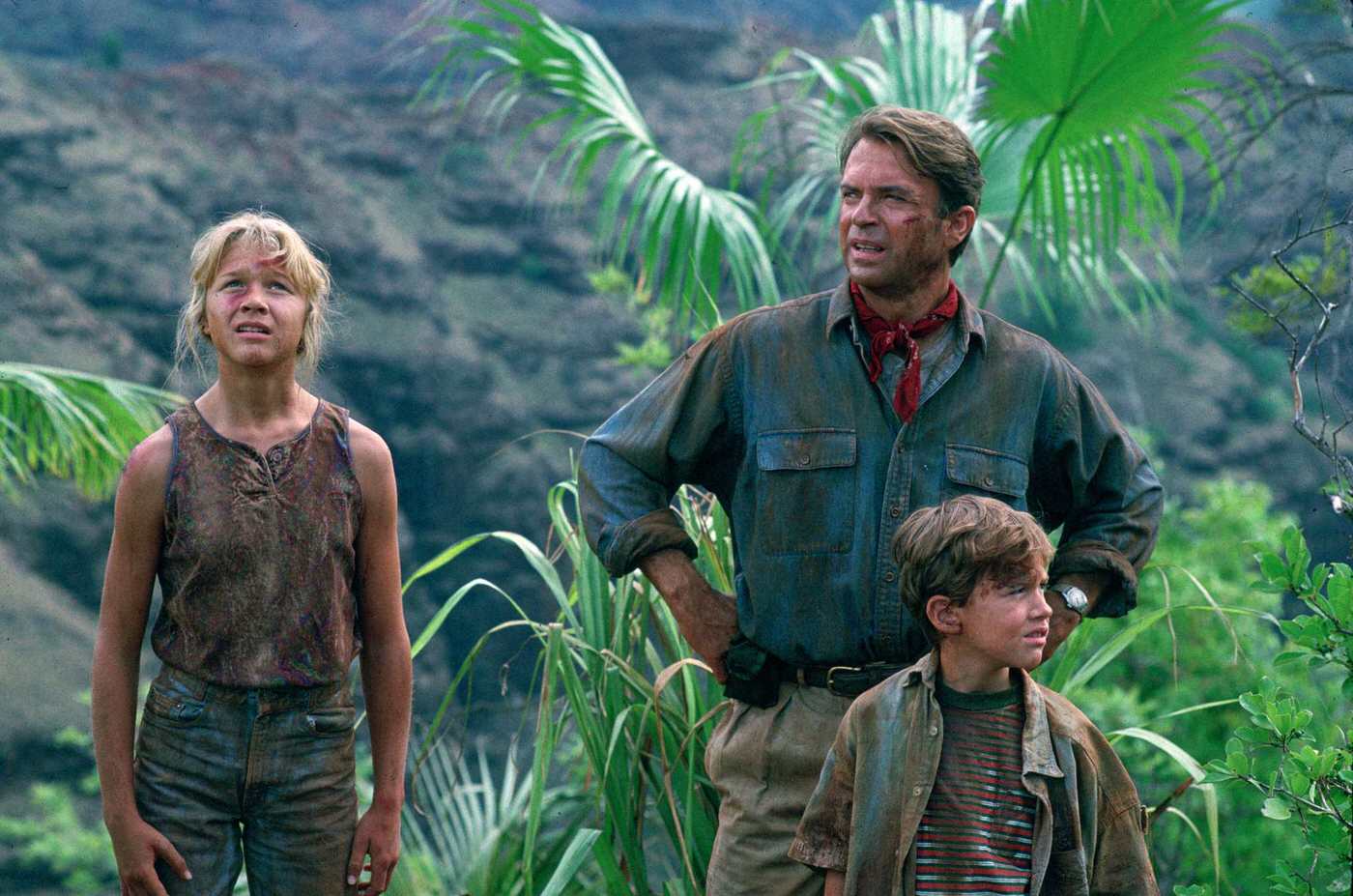
It is a groundbreaking sci-fi adventure film that highlights Steven Spielberg's ability to blend cutting-edge special effects with thrilling, character-driven storytelling. Based on Michael Crichton's best-selling novel, the film transports audiences to a remote island where dinosaurs have been brought back to life through genetic engineering. Spielberg's masterful direction creates an atmosphere of wonder, awe, and terror as the park's security systems fail and the prehistoric creatures wreak havoc. His innovative use of practical effects and CGI set a new standard for visual effects in filmmaking, while his skillful pacing and suspense-building techniques keep audiences on the edge of their seats. Jurassic Park is a testament to Spielberg's visionary genius and remains a beloved classic in the realm of blockbuster cinema.
#15 Schindler’s List (1993)
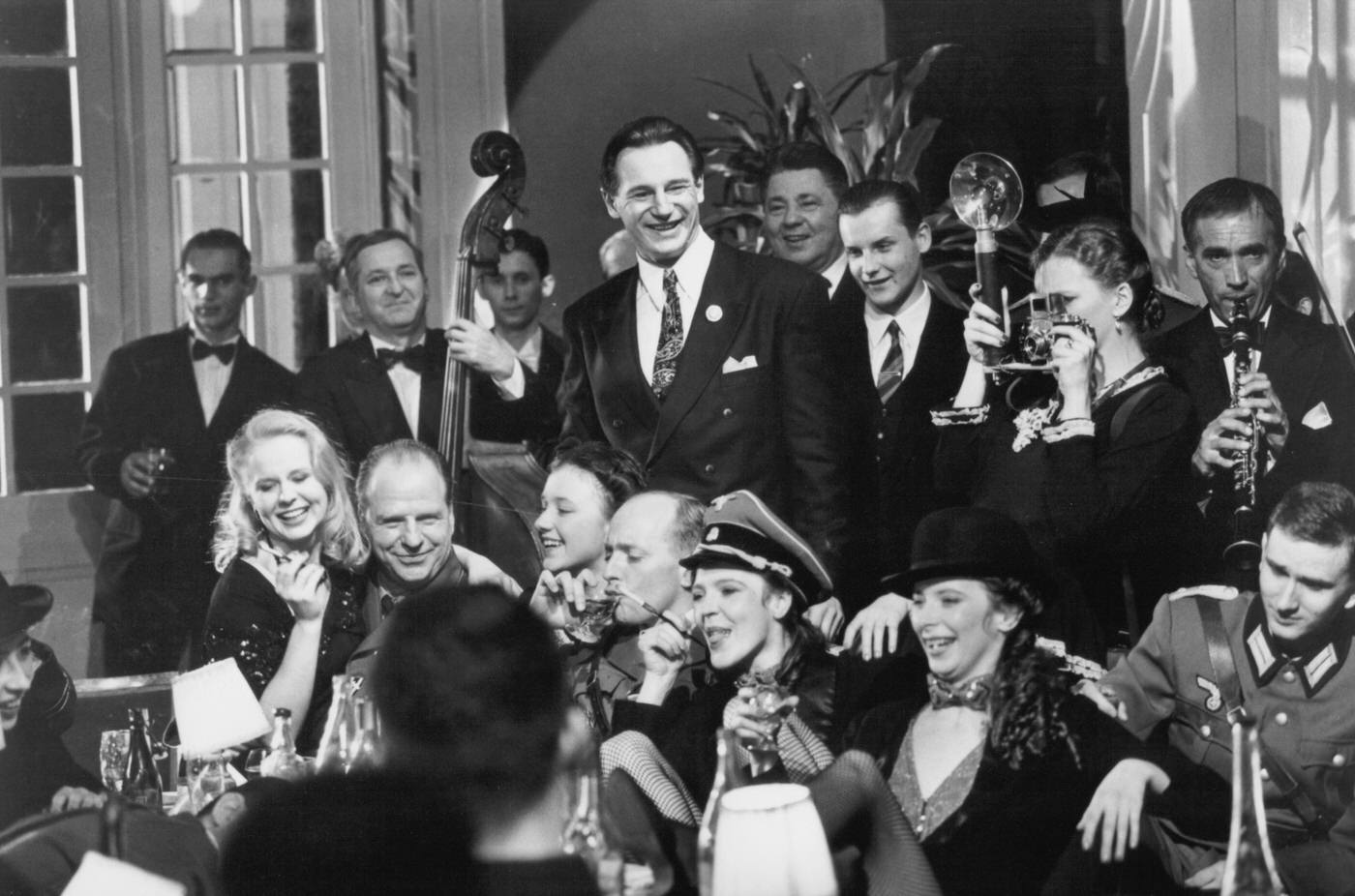
It is a profoundly moving Holocaust drama that showcases Steven Spielberg's ability to tell deeply emotional, historically significant stories with remarkable sensitivity and artistry. Based on the true story of Oskar Schindler, a German businessman who saved over a thousand Polish Jews by employing them in his factories, the film is a powerful exploration of humanity's capacity for both unspeakable evil and extraordinary compassion. Spielberg's masterful direction, combined with the striking black-and-white cinematography, captures the harrowing realities of the Holocaust while paying tribute to the resilience of the human spirit. Schindler's List is not only a cinematic masterpiece but also an enduring testament to Spielberg's profound storytelling abilities and his commitment to preserving history through the power of film.
#16 The Lost World: Jurassic Park (1997)
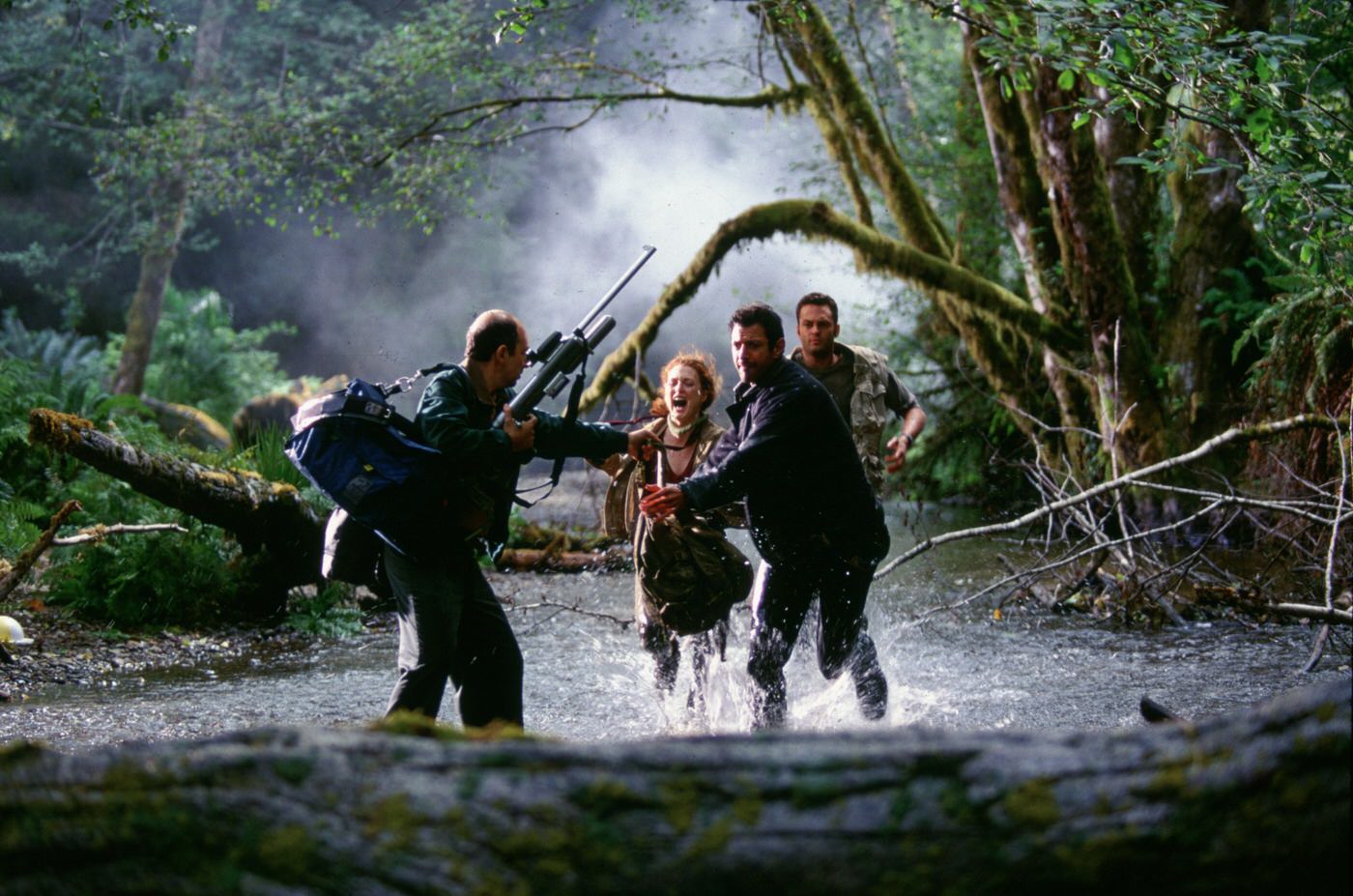
It is a thrilling sequel to the groundbreaking original, showcasing Steven Spielberg's talent for delivering visually stunning, action-packed adventures. Set four years after the events of Jurassic Park, the film follows a research team to a second island, where dinosaurs roam freely without the confines of the original park. As the team uncovers corporate conspiracies and faces the dangers of the untamed wilderness, Spielberg's expert direction ensures a gripping, suspenseful experience. While maintaining his trademark blend of awe-inspiring visuals and edge-of-your-seat action, Spielberg also delves deeper into ethical questions surrounding genetic engineering and humanity's relationship with nature, demonstrating his skill in blending thought-provoking themes with blockbuster entertainment.
#17 Amistad (1997)
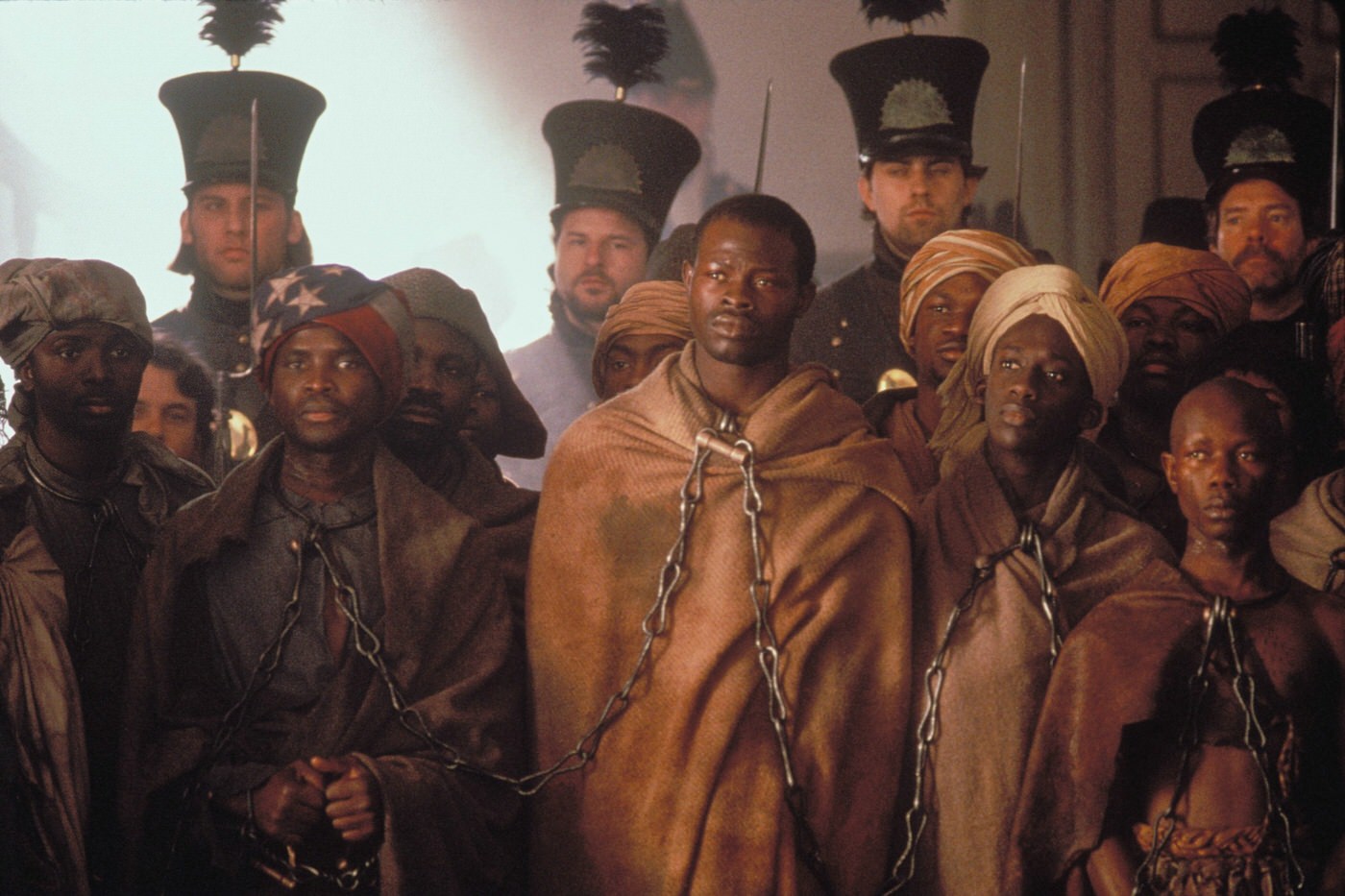
It is a powerful historical drama that showcases Steven Spielberg's ability to tell emotionally gripping, socially relevant stories with nuance and authenticity. Based on the true events of the 1839 slave ship rebellion, the film follows a group of West Africans as they fight for their freedom in a U.S. courtroom. Spielberg's direction masterfully captures the horrors of the slave trade and the struggle for justice, while also delving into the complexities of the American political and legal systems of the time. With exceptional performances from the ensemble cast, Amistad demonstrates Spielberg's commitment to exploring significant historical events through compelling, character-driven narratives, highlighting his versatility and skill as a filmmaker.
#18 Saving Private Ryan (1998)
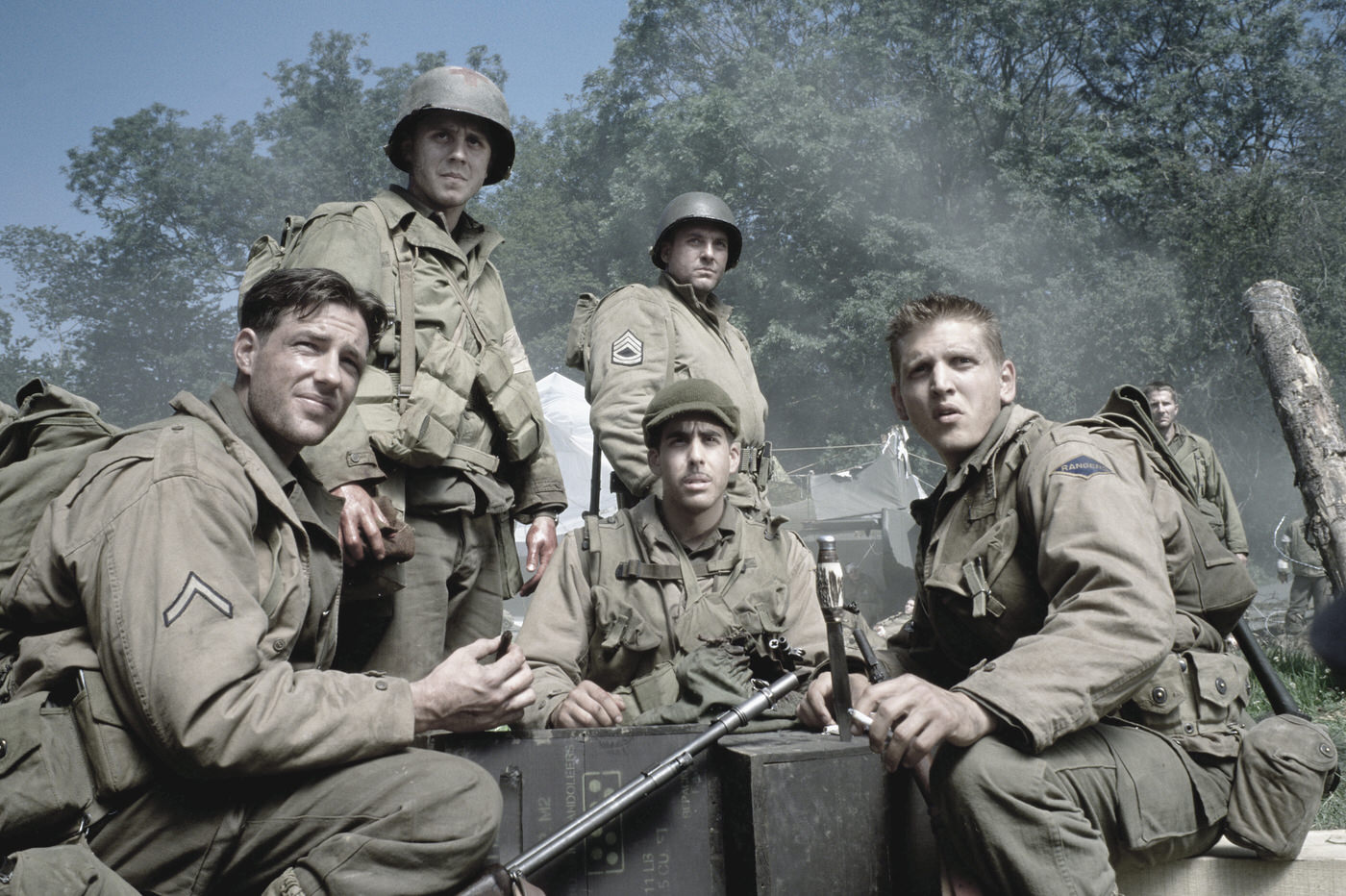
It is a masterful war epic that highlights Steven Spielberg's extraordinary talent for blending visceral, large-scale action with intimate, emotionally charged storytelling. Set during World War II, the film follows a group of soldiers on a harrowing mission to find and bring home the last surviving brother of a family who has lost three sons in combat. Spielberg's unflinching direction captures the brutal realities of war, particularly through the film's intense, groundbreaking opening sequence depicting the D-Day invasion. His skill in portraying the bonds formed between soldiers amidst the chaos of battle, combined with outstanding performances from the ensemble cast, results in a deeply moving, unforgettable cinematic experience that solidifies Spielberg's status as one of the greatest directors of all time.
#19 A.I. Artificial Intelligence (2001)
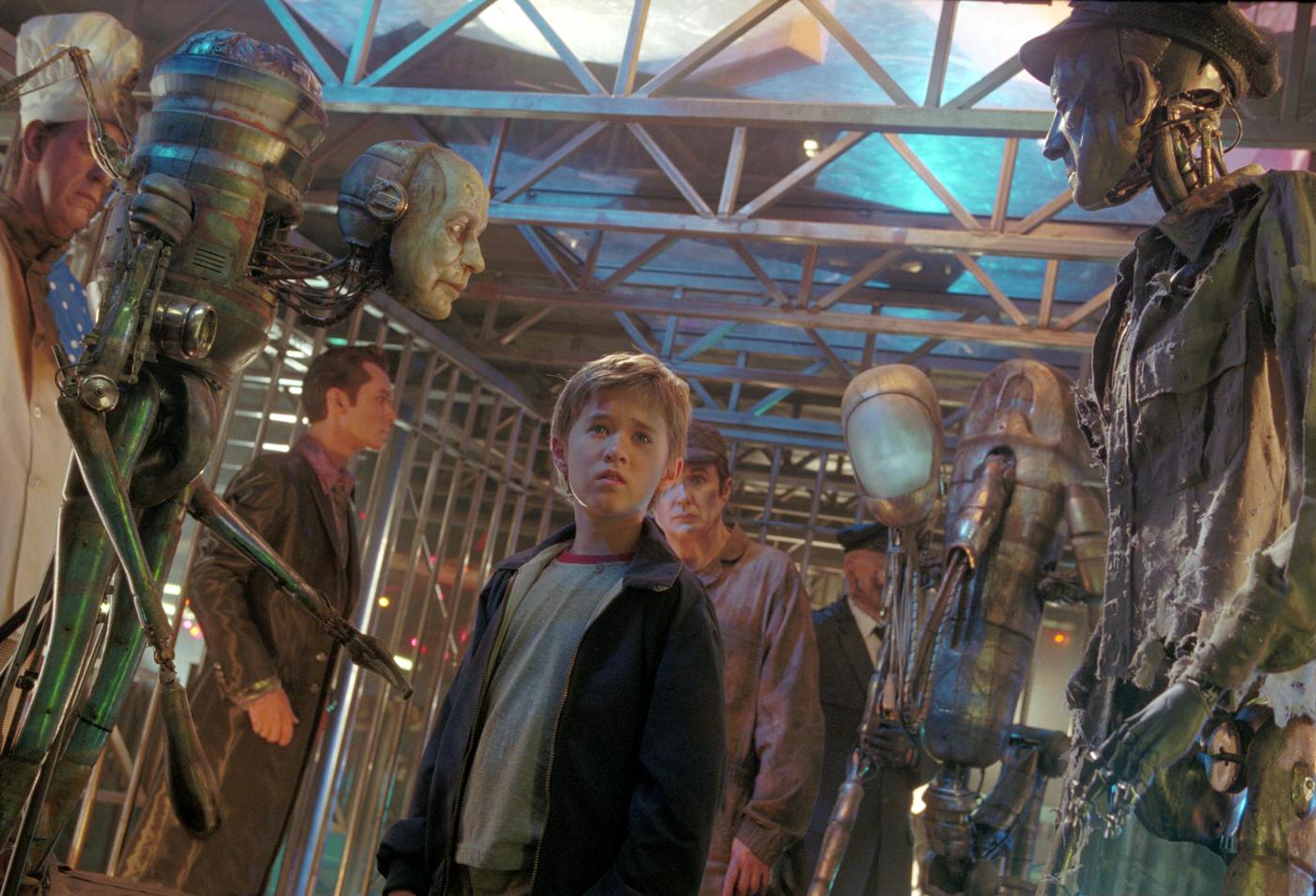
It is a visually stunning, thought-provoking sci-fi drama that showcases Steven Spielberg's ability to explore complex themes while creating rich, immersive worlds. Originally conceived by Stanley Kubrick, the film follows a highly advanced robotic boy named David, who yearns to be human and win the love of his adoptive mother. Spielberg's direction expertly balances the film's emotional depth with awe-inspiring visuals and cutting-edge special effects, creating a poignant exploration of what it means to be human. A.I. raises ethical questions about the development of artificial intelligence and the nature of humanity, demonstrating Spielberg's skill in marrying thought-provoking storytelling with captivating, futuristic settings that continue to resonate with audiences.
#20 Minority Report (2002)
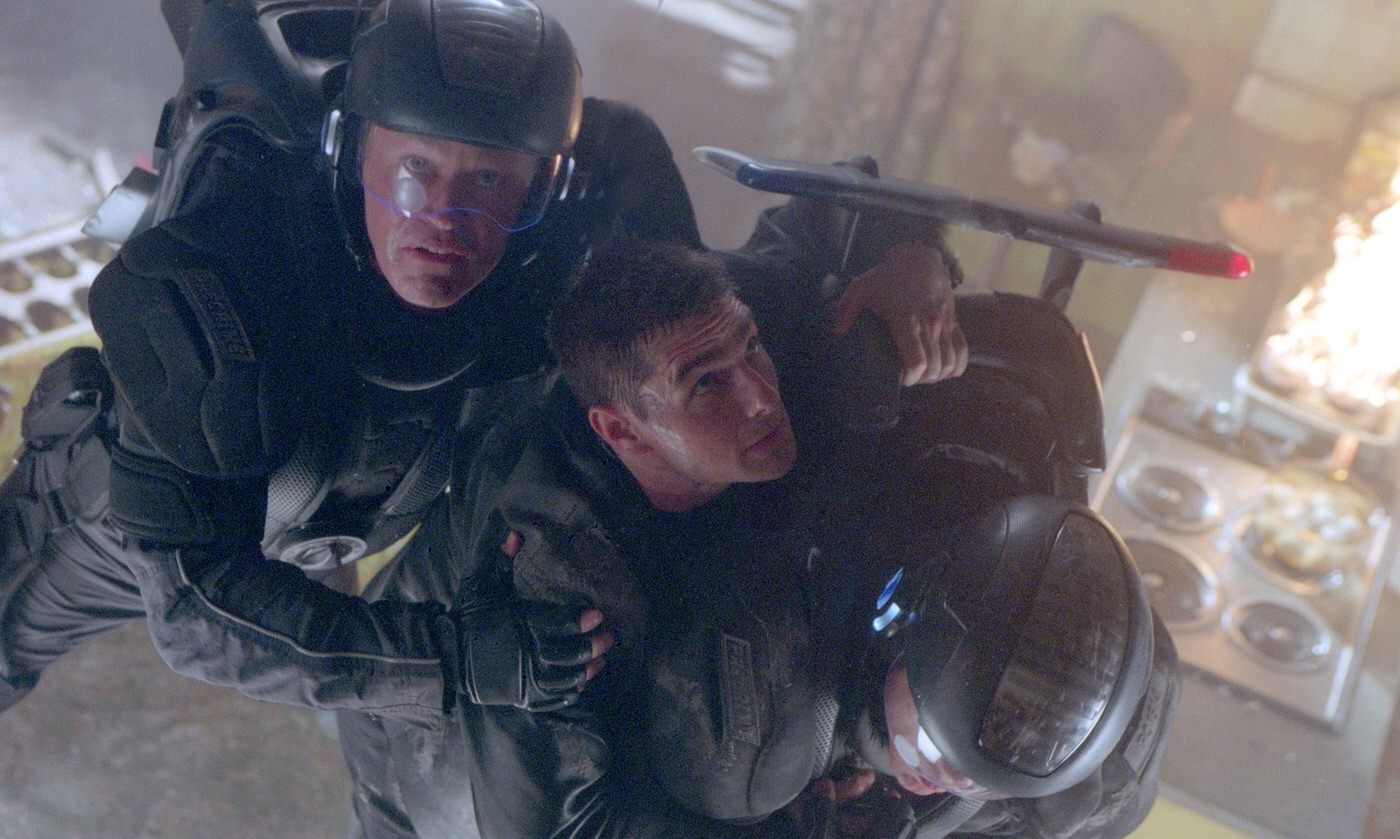
Minority Report (2002) is a thrilling, futuristic sci-fi action film that highlights Steven Spielberg's talent for crafting captivating, thought-provoking stories. Set in a future where a police department uses psychic "pre-cogs" to prevent murders before they occur, the film follows one officer, played by Tom Cruise, who becomes embroiled in a conspiracy after being falsely accused of a future crime. Spielberg's direction expertly blends suspenseful action sequences with philosophical exploration, as he examines issues surrounding free will, privacy, and government control. The film's innovative visual effects and dynamic cinematography create a futuristic, immersive atmosphere that draws audiences into the film's complex world. Minority Report is a testament to Spielberg's versatility as a filmmaker, showcasing his ability to tackle diverse genres while creating unforgettable cinematic experiences.
#21 Catch Me If You Can (2002)
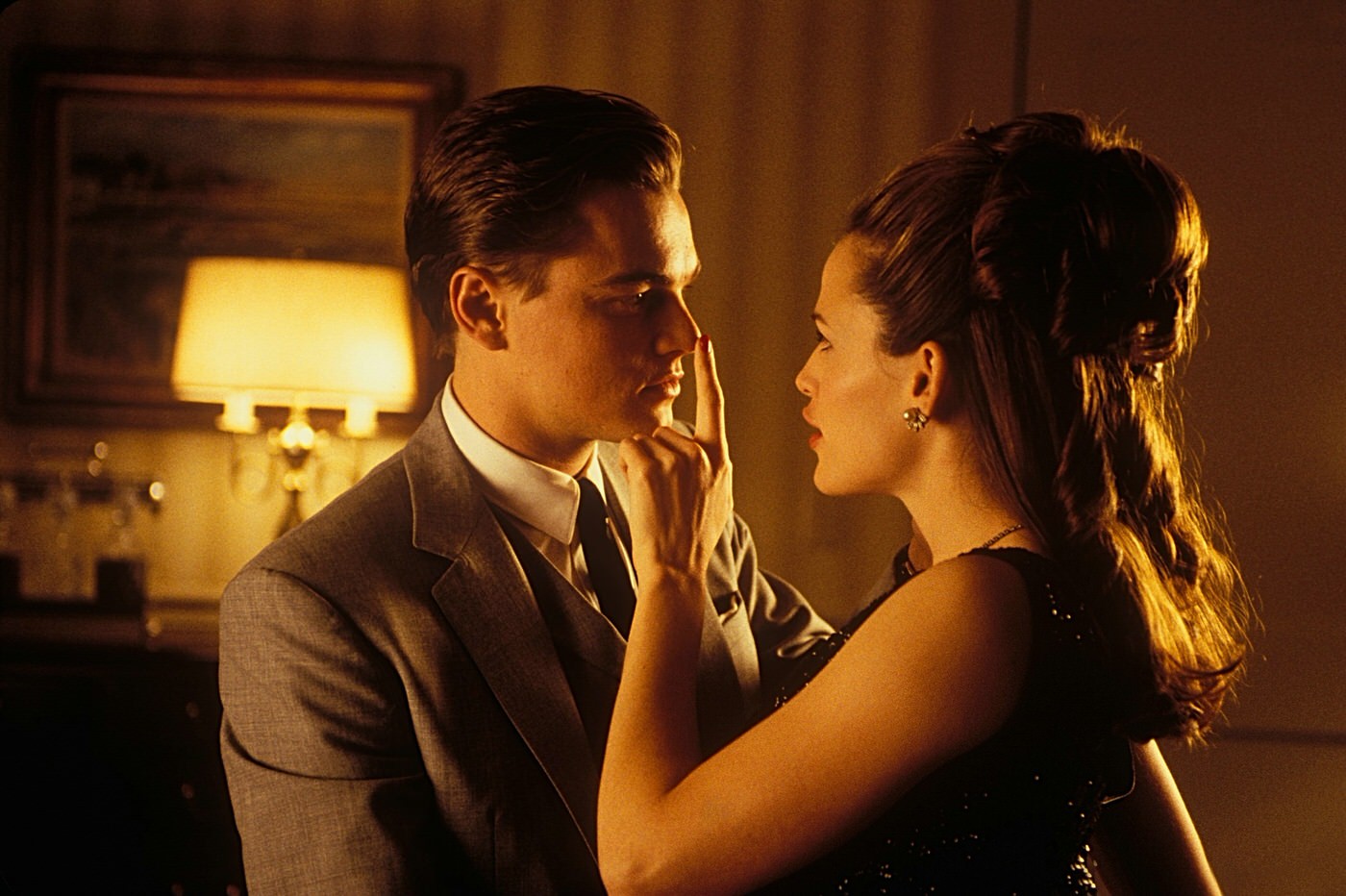
It is a stylish, captivating biographical crime film that showcases Steven Spielberg's ability to bring real-life stories to the big screen with skill and authenticity. Based on the true story of Frank Abagnale Jr., a con artist who successfully impersonated a pilot, doctor, and lawyer, the film follows Abagnale's cat-and-mouse game with a determined FBI agent, played by Tom Hanks. Spielberg's direction perfectly balances drama, humor, and suspense, while the film's inventive cinematography and retro stylings evoke the 1960s era in which the story is set. The chemistry between leads Leonardo DiCaprio and Hanks adds to the film's charm and energy, making Catch Me If You Can a captivating, entertaining cinematic ride that showcases Spielberg's versatility as a director.
#22 The Terminal (2004)
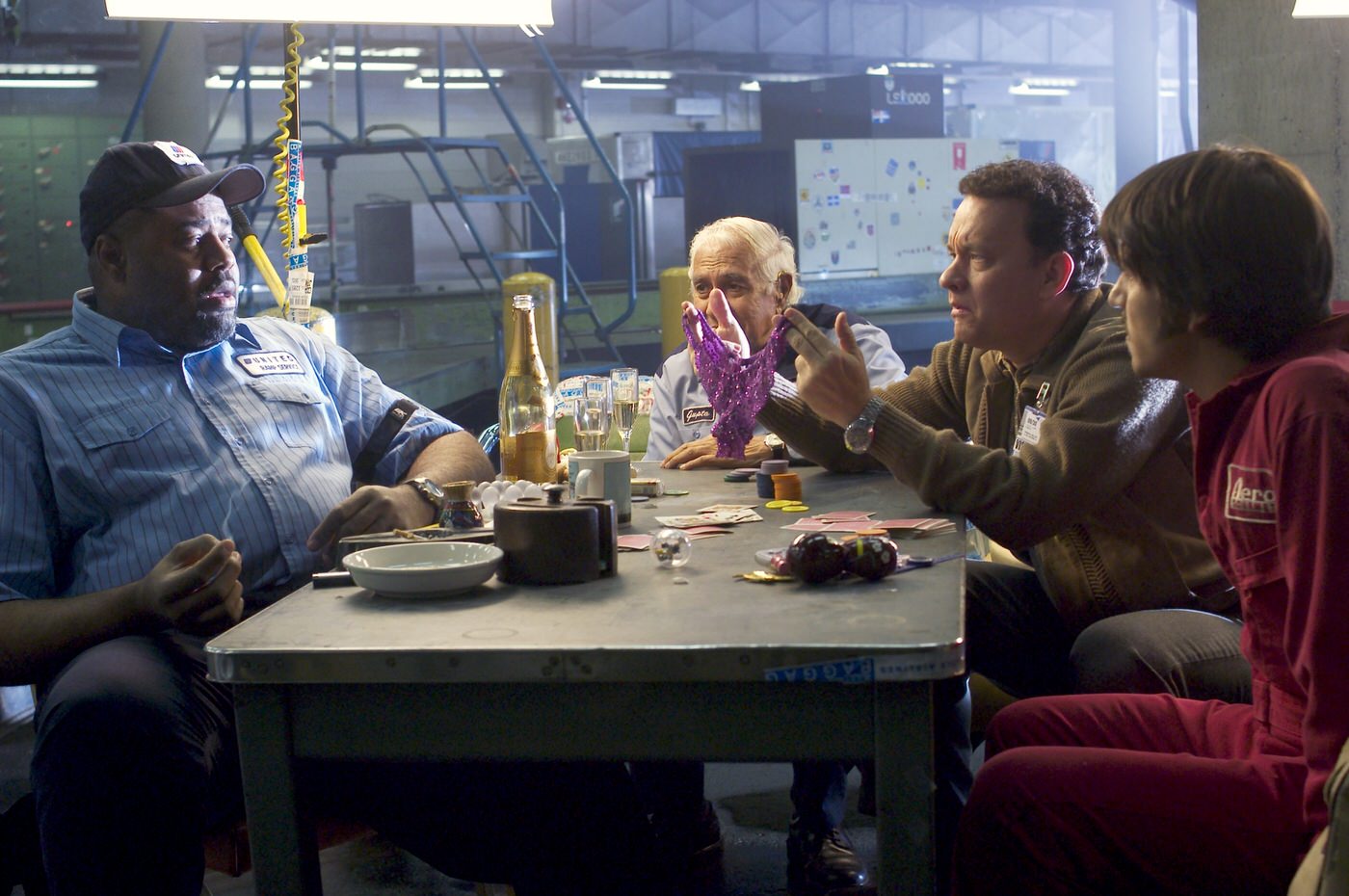
It is a heartwarming comedy-drama that showcases Steven Spielberg's ability to create engaging, character-driven stories that celebrate the human spirit. The film follows an Eastern European man, played by Tom Hanks, who becomes stranded in JFK airport when his country undergoes a political upheaval, leaving him unable to enter the United States or return home. Spielberg's direction creates a whimsical, almost fairy tale-like atmosphere that highlights the character's resilience and resourcefulness in the face of adversity. His ability to craft empathetic, multi-dimensional characters, combined with Hanks' charismatic performance, results in a charming, uplifting film that explores themes of friendship, perseverance, and the power of hope. The Terminal may not be as well-known as some of Spielberg's other works, but it demonstrates his talent for telling poignant, human stories that resonate with audiences.



